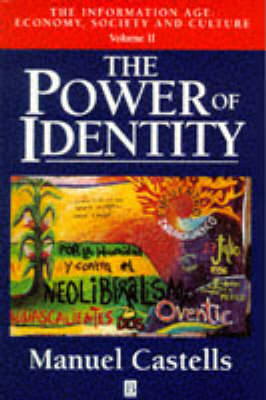This is an account of the two great and conflicting trends now shaping the world: globalization and identity. The information technology revolution and the restructuring of capitalism have induced the network society, and ushered in the globalization of strategic economic activities, flexibility and instability of work, and a culture of real virtuality. But alongside the transformation of capitalism and the demise of statism there has been a powerful surge of expressions of collective identity. These challenge globalization on behalf of cultural singularity and control over life and environment. Manuel Castells describes the origins, purpose, and effect of proactive movements, such as feminism and environmentalism, which aim to transform human relationships at their most fundamental level: and of reactive movements that build trenches of resistance on behalf of God, nation, ethnicity, family, or locality. The fundamental categories of existence, the author shows, are threatened by the combined, contradictory assault of techno-economic forces and transformative social movements, each using the new power of the media to promote their ambitions.
Caught between these opposing trends, he argues, the nation-state is called into question, drawing into its crisis the very notion of political democracy. The author moves thematically between the United States, Western Europe, Russia, Mexico, Bolivia, the Islamic World, China and Japan, seeking to understand a variety of social processes that are, he contends, closely inter-related in function and meaning. This is a book of profound importance for understanding how the world will have been transformed by the beginning of the next century.
- ISBN10 1557868743
- ISBN13 9781557868749
- Publish Date 20 June 1997 (first published 28 September 1996)
- Publish Status Out of Print
- Out of Print 29 September 2005
- Publish Country GB
- Publisher John Wiley and Sons Ltd
- Imprint Blackwell Publishers
- Edition Volume II ed.
- Format Paperback
- Pages 480
- Language English
